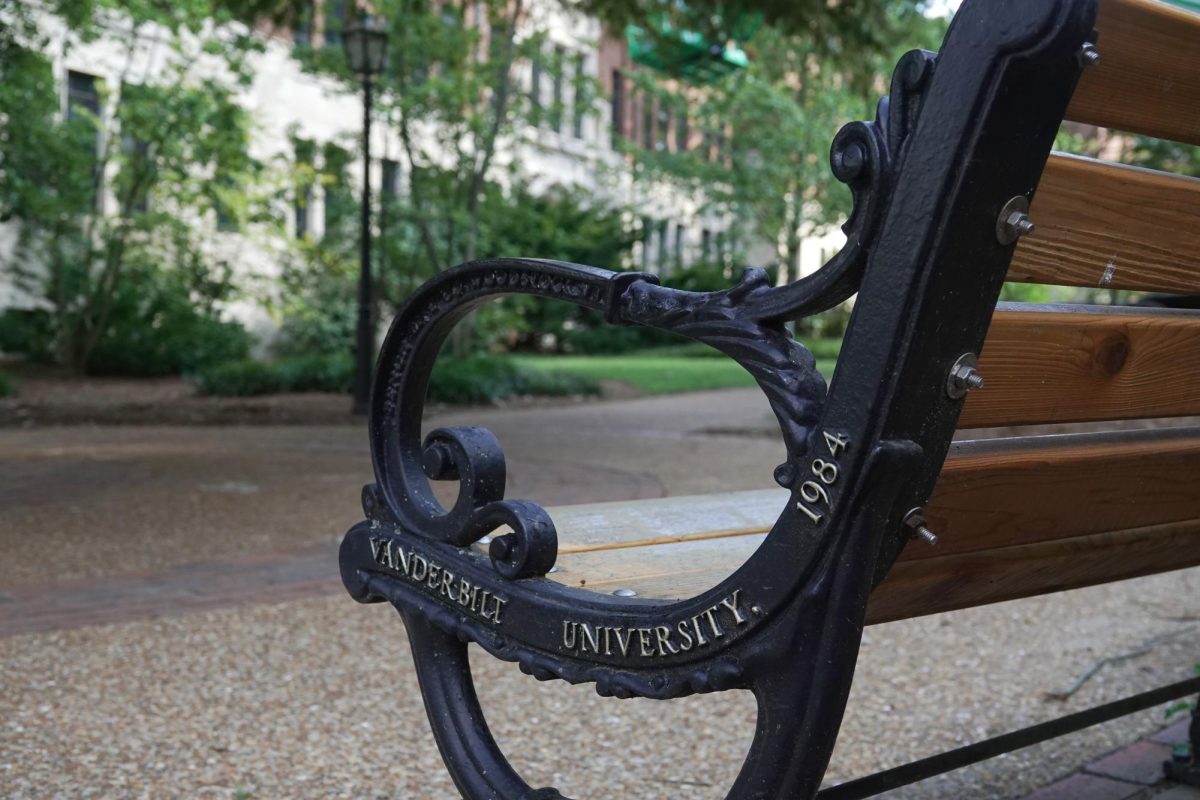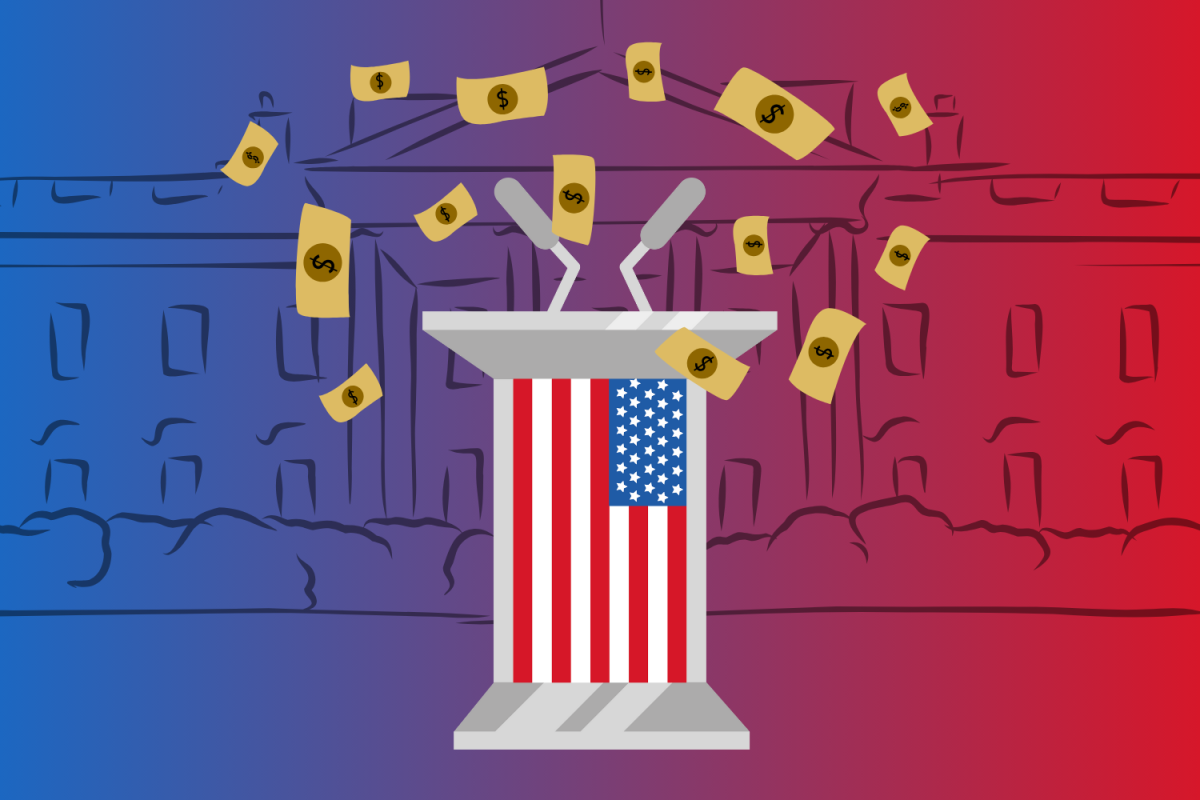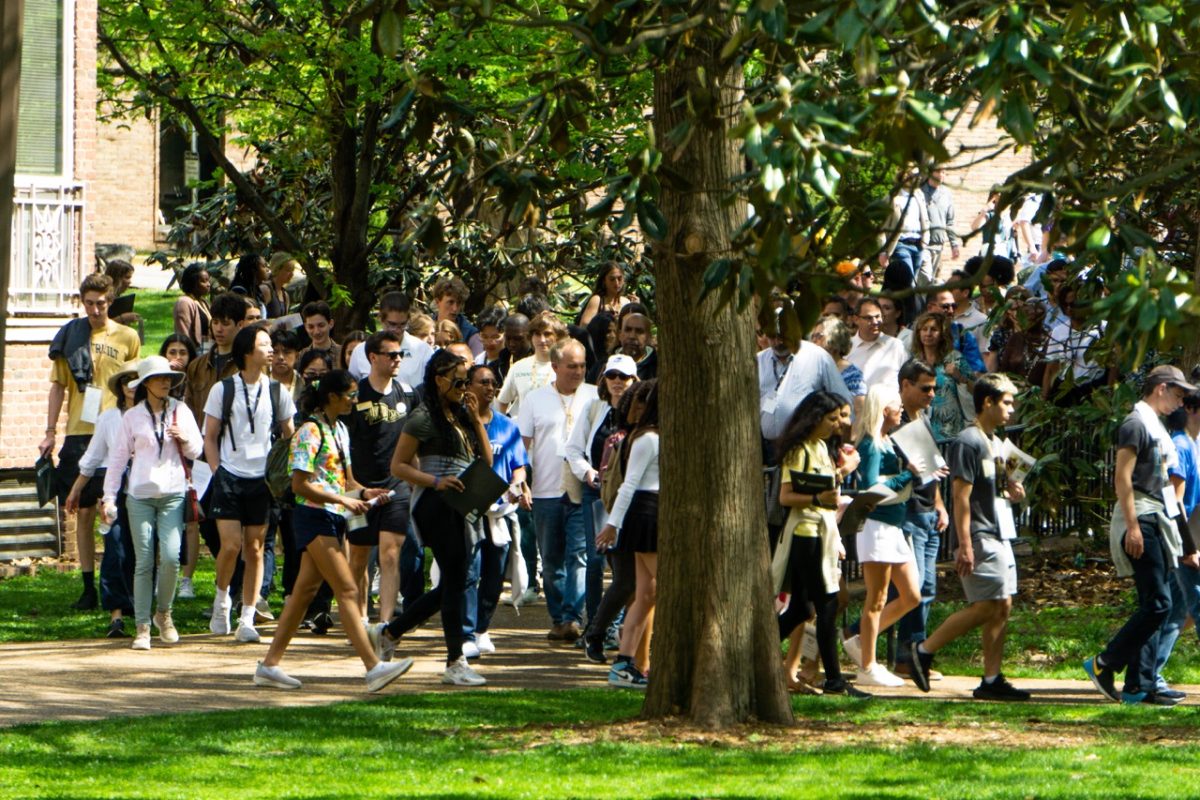U.S. News & World Report released its 2025 Best National University rankings on Sept. 24, with Vanderbilt remaining at No. 18 for the second year. The same day, Chancellor Daniel Diermeier sent an email to the Vanderbilt community criticizing the rankings and methodology change U.S. News underwent last year, a similar email to the two he sent last September.
Forbes ranked Vanderbilt at No. 15, while The Wall Street Journal ranked Vanderbilt at No. 44. The university’s ranking in The Princeton Review showed decreases in multiple categories, including best quality of life, happiest students, best campus food and best student support and counseling services, while the most beautiful campus ranking increased to No. 10.
U.S. News ranking
Vanderbilt’s second year at No. 18 in U.S. News is a decrease from No. 13 and No. 14 rankings the previous three years. No. 18 is the lowest U.S. News rank since 2009 for the university, whose mission for its Board of Trust is to help the university become one of the top 10 research and teaching universities in the country.
U.S. News significantly changed its methodology last year after top schools — including Vanderbilt Law School — opted out of the ranking due to concerns about the factors used in determining a school’s position. The methodology underwent no significant changes this year.
First-year Evanya Mathur explained that she disagrees with the rankings, but they didn’t affect her decision to attend Vanderbilt.
“I disagree more with the rankings due to its failure to address the important steps that Vanderbilt is taking to create a collaborative and inclusive campus experience,” Mathur said. “Vanderbilt allows many students each year to engage deeply with their interests in a stress-free manner.”
She also mentioned that prospective students should prioritize understanding the quality of life socially and academically from current students rather than simply looking at rankings.
“Chancellor Diermeier mentioned in his email how rankings are a large factor in persuading families to consider Vanderbilt, and while that is the case, I feel that this statistic is only the tip of the iceberg when discovering all that this institution has to offer,” Mathur said.
Among the top 20 spots in the U.S. News ranking, no new universities were added, and none were removed. Within these top 20 schools, there was some fluctuation from last year’s ranks.
University of Pennsylvania and Brown University dropped the most spots, from No. 6 to No. 10 and No. 9 to No. 13, respectively. Johns Hopkins University, Northwestern University and Dartmouth University all moved up three spots. Vanderbilt is now tied for No. 18 with Rice University and University of Notre Dame.
Criticism of ranking systems
Diermeier’s Sept. 24 email said the U.S. News rankings “conceal some of Vanderbilt’s greatest facets.” He highlighted the methodological changes made last year that altered how U.S News measures academic quality and social mobility within a university.
“I have been highly critical of this [U.S. News] ranking system for its imprecise methodology, misaligned incentives and reliance on low-quality data, because these rankings are used to help students — and the families who support them — choose where to go to college,” the email reads. “The importance of this decision is enormous: it powerfully and permanently affects students’ lives and careers.”
Diermeier described Vanderbilt as “thriving across the board” and said he would continue to advocate for a more representative ranking system.
“On the cusp of our next era, we will not allow our impact to be measured in a reductionist hierarchy that doesn’t reflect your incredible work, excellence and culture of community that is second to none,” Diermeier said. “Vanderbilt will forge ahead, concerned first and foremost with providing a transformative education for our students and with producing pathbreaking research that can change the world.”
Following the release of last year’s rankings, the Office of the Chancellor commissioned and funded a study by NORC at the University of Chicago to assess the construct validity of five university ranking systems — U.S. News & World Report, Wall Street Journal, Forbes Top College list, The Times Higher Education University Ranking and the QS University Ranking.
Findings of the study include that methodologies of these rankings remain unclear, data quality is inconsistent and subjective factors are critical components in determining ranks. In his email, Diermeier said the study shows there is no consistent standard for what makes a university good.
“Each ranking creates its own target and then purports to hold colleges to that subjective standard,” Diermeier said. “In many cases, ‘good’ is not academic excellence or the provision of a transformative education — it is an aggregation of various weighted measures that cannot represent any individual student’s needs or desires for their future place of study.”
Top 20 schools vary between ranking systems, and only eight universities find themselves in the top 20 spots of U.S. News, Forbes and Wall Street Journal’s college rankings this year.
In a September 24 Forbes op-ed, Diermeier outlined an alternative rating system to the ranking systems he criticizes in the article. He described the rating system as providing quantitative data about academic quality and accessibility as opposed to the “opinions and self-interested methodologies of rankings organizations.”
Sophomore Madison Long said Diermeier’s responses reveal “a level of tone deafness” but that she still appreciates his attempt to reassure the students and families who care about the university’s ranking.
“While rankings such as this can be very relevant, Diermeier’s concerns seem to lie more with appearance rather than the satisfaction of the student body,” Long said. “I think if he more aptly responded to the legitimate concerns of the students and faculty who make up this school, we would all be much better off.”
The university declined to comment on whether Vanderbilt will continue to participate in U.S. News and other rankings going forward.
“Our mission remains to raise awareness of the flawed methodologies of such ranking systems, to push for increased transparency in how these rankings are determined and to work toward alternatives that could better serve prospective students and families,” a university representative said in an email to The Hustler. “By reducing complex institutions to a single number and excluding important data, these rankings fail to provide students with an accurate picture of academic quality and access.”
The representative also said that following the NORC report, Vanderbilt hopes to work toward a “more reliable system” to help students and families make decisions about where to go to college.
Other rankings
The Princeton Review ranks colleges in various categories based on surveying 168,000 students at 390 schools. Vanderbilt dropped in multiple categories, including to No. 21 in best quality of life from the university’s No. 1 rank last year. The university also dropped from No. 6 to No. 25 and from No. 2 to No. 14 in best campus food and best student support and counseling services, respectively.
The university’s ranking for great financial aid was not featured in the top 25 list, after being No. 19 last year and No. 1 two years ago. Similarly, Vanderbilt’s spot in the happiest students category dropped to No. 25, compared to No. 22 last year and No. 2 the year prior.
Junior Annalise Edwards said she understands why Vanderbilt’s rankings have decreased as she’s noticed a lack of overall improvements corresponding to student life.
“There have been very significant changes to dining, administration/student relationships and campus itself in the past year,” Edwards said. “I’m not surprised that these changes haven’t impacted student life for the better, and I feel that our rankings reflect that.”
Wall Street Journal placed Vanderbilt at No. 44 in its 2025 Best Colleges in the U.S. list, the lowest the university has ever been ranked by this system since its creation in 2016 and a drop from No. 13 last year. The WSJ ranking system seeks to measure how well a school sets up graduates for financial success by analyzing student outcomes, learning environment and diversity.
Vanderbilt saw an increase in ranking according to Forbes’ list of America’s top colleges up to No. 15 from No. 19 last year. Forbes ranks schools according to alumni salary, debt, graduation rate, the Forbes American Leaders List, return on investment, retention rate and academic success.
Senior Nidhi Patel explained that although she considered rankings when making her college decision, her experience at Vanderbilt has shown that they don’t adequately convey the opportunities and committed teachers present on campus.
“I hope that the overall decline in rating will not dissuade future students from selecting this prestigious university,” Patel said. “I agree with Forbes’ ranking, which emphasizes the return on educational investment and academic success over student demographics, as the Wall Street Journal does.”















